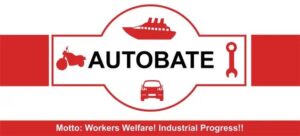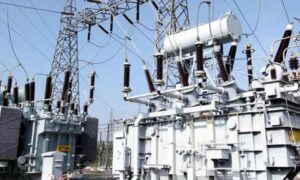
An upward review of petrol pricing will become effective at the retail stations of the Nigerian National Petroleum Company (NNPC Retail) and other independent outlets on Wednesday.
Sources familiar with the development told the press on Wednesday morning that the NNPC and other marketers are adjusting prices at their pumps to reflect the actual cost of petrol at Dangote Refinery.
The recent development comes after the NNPC decided to terminate its exclusive purchase agreement with Dangote Refinery.
Earlier on Monday, it was newspaper exclusively reported that the Nigerian National Petroleum Company Limited (NNPC Ltd) is ending its exclusive purchase agreement with Dangote Refinery, opening up the market for other marketers to buy petrol directly from the refinery.
This means the NNPC will no longer be the sole off-taker, and marketers can now negotiate prices directly with Dangote Refinery. This development aligns with the current practices for fully deregulated products, where refineries can sell directly to marketers on a willing buyer, willing seller basis.
The NNPC has refused to officially speak on the matter despite repeated requests by this newspaper. A Dangote refinery spokesperson also refused to comment on the matter. It is also not clear if NNPC is still importing petrol to augment the one produced by the Dangote refinery.However, an official of the NNPC who spoke to this newspaper Wednesday morning said “bulk is close to N1000 based on cost from Dangote (Refinery) being circulated at N953.”
The source noted that the product will now sell for N998 per litre at the NNPC stations in Lagos and N1,025 in other South-West states. In Abuja, prices range between N1,030 to N1,065.
In Nigeria’s North-east, the petrol prices at the NNPC retail station will range between N1,060 and N1,070 while in the South-south prices are expected to move between N1,055 and N1,075 per litre for the product.
The source who spoke to the press said since prices are now cost-reflective, Dangote Refinery is obligated, under the Crude for Naira arrangement, to sell petrol to Major Energies Marketers Association of Nigeria (MEMAN), Depot and Petroleum Marketers Association of Nigeria (DAPMAN), and Independent Petroleum Marketers Association of Nigeria (IPMAN) in Naira.
At NNPC retail stations where prices can be digitally reviewed, the change in pricing has been effected beginning Wednesday morning. Privately owned stations are expected to adjust their prices later on Wednesday.
We found that the Conoil filling station located beside the NNPC fuel station in Lugbe was shut against customers.
At DanMarna fueling station, also in Lugbe, Abuja, this newspaper observed that petrol was sold for N1,000 Wednesday morning.
Insiders revealed that independent marketers are expected to also review their prices upward beginning Wednesday, based on the prevailing cost prices from either the Dangote Refinery or other import sources.
The NNPC had claimed in September that it was buying petrol from Dangote Refinery at N898.78 per litre and selling to marketers at N765.99 per litre, shouldering a subsidy of almost N133 per litre. However, the company said this arrangement is no longer sustainable.
The NNPC lifted about 103 million litres of petrol from Dangote Refinery between September 15 and 30. The refinery was able to load 2,207 of the 3,621 trucks sent to it within the period under review.
The vehicles carried just 102,973,025 litres of the planned 400,000,000 litres of petrol earmarked to be lifted from the refinery at 25 million litres per day. That translated to just 26 per cent performance, records seen by in the media show.
Those familiar with the matter told reporters on Monday that NNPC is now set to withdraw as the sole off-taker to allow other marketers to directly purchase petrol from Dangote Refinery at the prevailing market price, promoting competition and potentially stabilising supply chains.
Last Saturday, the Nigerian government said it has officially commenced the sale of crude oil and refined petroleum products in Naira.
The sale in Naira took effect from 1 October, the Federal Ministry of Finance disclosed in a statement posted on its X handle.

